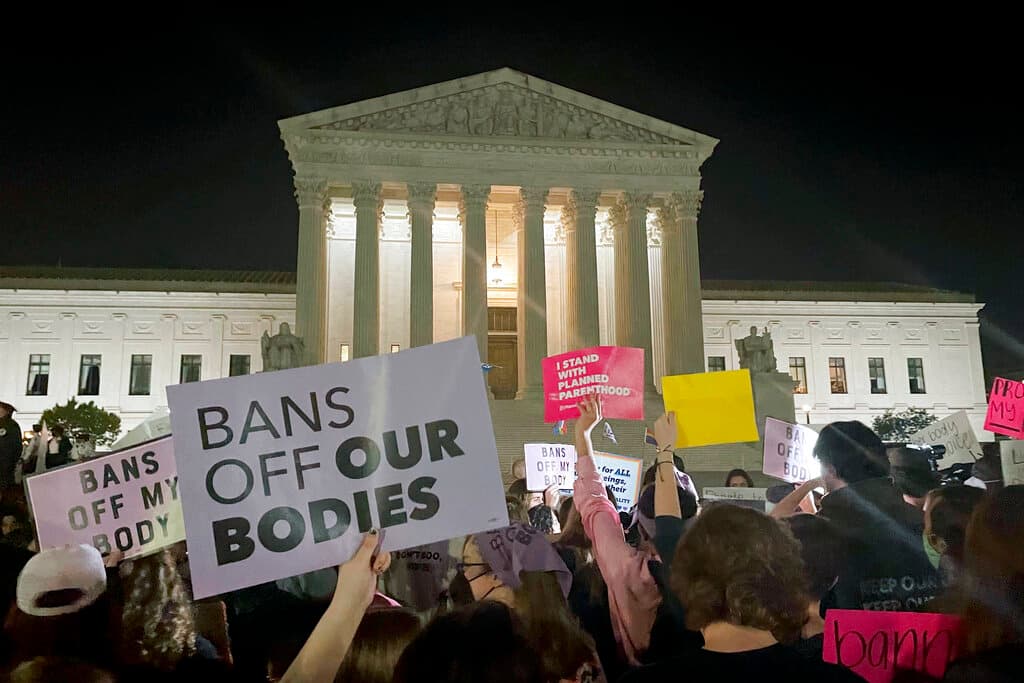Libertarian Land Features Fewer Quarrels Over Policy
For it’s all too often that the arguing is precipitated by government intervention.

An oft-neglected consequence of government is spawning protracted debate over the meaning and scope of intervention. At a minimum this debate is tedious and confusing, generating endless “litigation” by affected parties. Worse, these debates involve divisive issues, making society more adversarial and polarized than Libertarian Land.
Subsidizing health insurance requires government decisions about whether to cover abortion, birth control, or non-approved drugs. In Libertarian Land, all health insurance is private, and different providers offer different packages of benefits. Individuals choose the coverage options that best fit their preferences.
Civil marriage forces government to choose which kinds of couples are eligible. Are they only opposite sex couples, or only those of the same race, or only those between two people? Under the private contracting approach in Libertarian Land, government remains silent on these questions.
Government owned and operated schools, whether for higher education or kindergarten through 12th grade, must take stands on affirmative action, free speech, Title IX, sex education, sensitive books, controversial faculty, concealed weapons carry, and more.
Similar issues arise for private schools that accept government vouchers. All schools in Libertarian Land are entirely private, with different schools offering a range of options. Parents and students choose the kind of school that best fits their preferences.
Taxes on business income, combined with the view that some activities should be exempt, require government to define what constitutes a religion, educational institution, or political organization.
Similarly, the tax deductibility of charitable contributions requires government to define charity. Libertarian Land attributes all income to individuals, or taxes consumption, circumventing any need for such choices.
Statues in public parks force governments to pick specific statues. Libertarian Land has no public parks. Funding for museums implies governments endorsement of particular artists (Serrano, Mapplethorpe), historical figures (Margaret Sanger), or perspectives on history (the Holocaust).
Relatedly, funding for “culture” means choosing between Brahms, the Rolling Stones, sports stadiums, or Sesame Street. Funding for scientific research must choose whether to support research on stem cells, climate change, or drug prohibition. In Libertarian Land, private groups supply these activities in proportion to market demand.
Anti-discrimination laws — about employment, housing, lending, college admissions — require government to define discrimination. Does it cover any choice that weights characteristics like race or gender, thereby barring reverse discrimination and diversity practices?
Or do these laws ban only discrimination that harms members of protected groups? What about statistical discrimination, meaning choices that use characteristics like race or gender as proxies for allowed characteristics that might predict productivity (like a low credit history)?
Is discrimination outlawed when it has a disparate impact but no malicious intent (for instance, better lending terms for borrowers with higher incomes)? In Libertarian Land, no laws outlaw (private) discrimination, and no government policies require or encourage discrimination.
Labor market policies, such as required time-and-a-half for overtime, mean government must determine what constitutes being an employee as opposed to an independent contractor. The answer affects compensation and workplace flexibility, prompting ballot initiatives like California’s Proposition 22, which allows app-based transportation companies (e.g., Uber and Lyft) to treat their “employees” as independent contractors.
In Libertarian Land, government intervenes in labor markets only by enforcing contractual disputes between firms and the people they hire. The increased complication and controversy from intervention is not an accident or a fixable “bug.”
When government intervenes, it must address the interaction of that intervention with existing policies and preferences. Likewise, intervention pushes citizens to behave in certain ways; this generates backlash from those affected.
A middle ground is intervening in ways that distance government from divisive decisions. Publicly funded education vouchers that include religious schools might face resistance, but since parents rather than government would choose to use vouchers at such schools, the scope of controversy is lower.
The added complication and backlash from intervention do not make all government undesirable. For those who believe interventions generate substantial benefits, these side effects may seem a necessary evil.
The Supreme Court ruling that burning an American flag constitutes protected speech under the First Amendment is one example. Yet both sides must accept that, in addition to making policy complicated, messy, and argumentative, many interventions are inevitably polarizing. This is a cost of intervention that Libertarian Land avoids.

